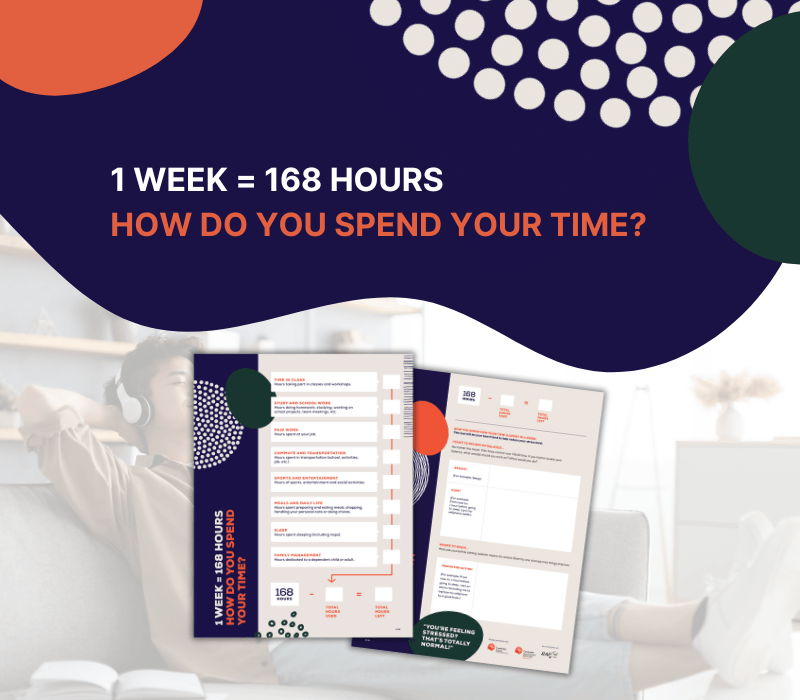What is school/work/personal life balance?
School/work/personal life balance refers to the balance students need to find between their school responsibilities, the time devoted to their paid job and the moments they reserve for the other aspects of their life.
Working during their studies can be beneficial for students. Studies show that students who work for 15 hours per week or less have better school results and are at a lower risk of dropping out that those who do not work at all.
However, a challenging school/work/personal life balance can represent an important risk for their academic success.

Review of the literature
Synthesis – Working while studying: A review of the literature
The downloadable document and the data it contains provide interesting information that highlights the complexity of the effects of work on school perseverance, the reasons that motivate students to work, and the steps they take to balance school and work.
This document is the result of an initiative by our colleagues in the Chaudière-Appalaches (PRÉCA), Montreal (RRM), Gaspésie-Les Îles (Complice), and Estrie (R3USSIR) regions, in collaboration with the Chaire-réseau de recherche sur la jeunesse du Québec (Quebec Youth Research Network Chair).
Highlights
- Effects on school retention: Working while studying has complex effects on school perseverance. Although some students manage to balance the two, working long hours (>15 hours) can negatively affect academic performance.
- Reasons for working: Students work primarily for financial reasons, followed by professional, personal, and family reasons.
- Work-study balance strategies: Students report using various strategies to manage their time and responsibilities, such as careful planning and prioritizing tasks. Parents, schools, employers, and governments are also cited by students as playing a crucial role in helping them balance school and work.

Ideas for taking action

As parents, counselors or significant adults in the student’s life, we can:
- ask about the child’s job, about the number of hours they work in a week, and get them to think about how they feel about it
- check if they manage to complete their homework in time and if they stay engaged in school
- help them build a schedule and work on a routine to better manage their time
- pay attention to the signs and changes in their health and personal life (signs of exhaustion, absenteeism or lateness in school, spend less time on their interests and/or social interaction, etc.).
- talk with that child about the importance of setting themself limits
- talk with people around us to find more accommodating employers
- encourage them to keep focusing on their studies!
- use helpful tools, like the 168 Hours tool and JeConcilie.com

Identify signs of exhaustion
Difficulty to find proper balance between every aspect of your life can have a negative impact on your sleep. That can then lead to a reduced ability to concentrate and lower vigilance. Here are the main signs of exhaustion.
Source : www.cirris.ulaval.ca, « Savoir reconnaître les signes de fatigue » (available online).
Signs related to physical functioning
- Headaches
- Yawning
- Sleepiness
- Lower physical endurance
Signs related to emotions and behaviors
- Irritability
- Impatience
- Passiveness
- Loss of motivation
Signs related to mental functioning
- Forgetting things
- Harder to concentrate
- Frequently distracted or absent
- Exagerated perception of difficulties




